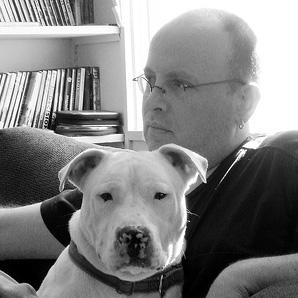Kevin Goldstein’s writing advice: Read out loud, write how you talk
Next up in our Advice From Good Writers series is Kevin Goldstein of Baseball Prospectus, who writes about scouting and player development for BP and ESPN.
He’s one of the most knowledgeable writers in the business on the subject of minor league prospects, but he doesn’t think he’s a good writer.
So he’s a good judge of baseball talent but not much of a judge of writing talent.
“While I’m totally honored to be included, I’m so not a good writer,” he emailed back when I solicited writing advice from him. “I’m just a guy who knows a lot about a niche, and knows how to get information about that niche.”
But that’s a huge part of what makes a good writer a good writer: knowledge. Expertise. And the ability to go get more of the same might be even more important. If you have that ability, you can become an expert on just about anything if you have enough time.
The fact that Goldstein has carved out his niche shows that. There are plenty of people who know plenty about prospects, but there are just a few, including Goldstein, whom prospect hounds turn to week after week and year after year.
Read one of Goldstein’s “Future Shock” blog posts or a feature about a player and you’ll see that he’s not a stylist in the Red Smith mold. He’s not writing beautiful prose that will make anyone forget about Shakespeare, or even Vin Scully.
But he doesn’t try to do that, and that’s not the only way to be a good writer. Goldstein packs massive amounts of information into his writing, and he does it clearly and economically. That’s no small thing.
His Twitter feed is a great example of that economy of language. He often answers questions about prospects — and video games — on Twitter.
“The best piece of advice I ever got was to try to write like you talk,” Goldstein continued. “I have no idea if others do it, but I say what I write, even just in my head to make sure it sounds right and/or natural. Best advice to new writers: Write, write and write some more, and then keep writing.”
Reading what you’ve written out loud is one of my most common pieces of advice to writers, and I disagree a little with Goldstein here. I think it has to be out loud. You hear mistakes and awkwardness you might not notice if you’re reading it “in your head.”
And one more argument with Goldstein’s modesty: Being able to write how you talk is not just something that happens. It’s a skill. Reading your work out loud can help you develop it.
A last note from Goldstein: “I think the biggest problem is that I don’t even like writing. I just like sharing information. If I could just talk every day (THAT I’m good at) about prospects and scout notes and whatever, I’d drop the writing in a second.”
If you want to be the judge of that, you can tune in Goldstein’s “Up and In Podcast,” which he co-hosts with fellow Prospectus writer Jason Parks. Look for episodes with Goldstein’s mom as a guest. Trust me.
-
Stefanie


